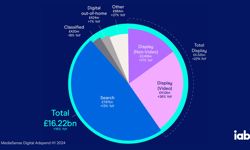Digital sales are helping Future Publishing keep on track. Yet even for this forward-looking content business with its portfolio of more than 80 magazine titles serving a worldwide collection of special interest audiences, Future plc chief executive Stevie Spring readily admits, when it comes to finding the right business strategy for a 21st century digital media world, the company is still feeling its way.
Accelerating pace of change
"The pace really is quite horrendous," she laments, albeit with an enthusiastic grin. "In the ten months since the iPad's launch, we've seen more change than in the years between web 1.0 and web 2.0. A bunch of our people recently came back from the annual Consumer Electronics Show in the US where there was talk of 80 - yes, eight zero - new tablets launching just within the next year. Survival of the fastest has become the only way to stay ahead. Which is why the philosophy here now is one of 'do and learn'."
It was not always so. When Spring - a lawyer by training whose portfolio career has spanned freelance copywriting to business development at TV-am, sixteen years in national and international advertising agency management, and six years as chief executive of out-of-home media company Clear Channel UK - took up her current role in 2006, the business was a troubled beast.
"I joined (Future) after a very aggressive acquisition spree in print had gone wrong," she recalls. "£50m had been spent on acquiring print titles, so little investment had been made appropriately in to digital, and the company had taken its eye off its core business. After joining, we sold the Italian business, the French business, and closed or sold more than fifty titles. There was a big re-organisation. We took £10m costs out and reinvested the same amount back into digital development."
Interim management statement
Five years on and Future is holding its own following an "incredibly tough" 2009 when profits fell more than 60 per cent. In its interim management statement report on Q1 of the current financial year published in February, the company reported digital ad sales up 25 per cent year-on-year - more than compensating for a 10 per cent decline in print ad revenue. Customer publishing revenue, meanwhile, was up 18% and digital magazine sales revenue increased "substantially".
In the UK, which accounts for 70 per cent of group revenue, circulation revenue during the quarter fell 4 per cent. Advertising revenue, however, rose by 7 per cent over the same period driven by digital ad sales growth. The company had eighteen print titles in revenue growth last year, Spring adds, and of the 200 new titles that came onto the market, it was responsible for 20 - including Comic Heroes and Tap! - a magazine for all things iPhone and iPad-related which, true to its content, enjoyed a multiplatform launch.
Focus on special interests
A major factor in Future's favour is its focus on catering for readers' special interests. Its technology titles span consumer electronics, computing and photography with titles such as flagship consumer tech brand T3. Its games portfolio straddles console and PC gaming with consumer and customer titles, and the industry's first on-console digital editions - monthly Qore and weekly FirstPlay available via the Sony's PS3. It publishes a family of established music and movie brands, including Guitar World and Total Film. And as well as cycling, biking and car titles, it also caters for craft and hobbyists.
As a result, Future's advertising business is split across a diverse array of sectors, some of which - film, music and cycling, for example - have remained in growth despite recession which has helped off-set decline in other sectors - notably, automotive. By catering for readers' passions, it is able to command premium cover prices - on average, over £5 though some are as much as £14.99. And with an emphasis on catering for technology enthusiasts, Future has also benefited from a built-in ready market for digital products which, along with partnership publishing, is now the business's engine for growth.
"In digitised content, the core strategy on the web has been to develop what we call 'radar' propositions - special interest portals, such as TechRadar - into which content from a number of different Future titles feeds. This web stuff is free to access - funded either by advertising or affiliate partners. But we charge for the digital products we've developed on consoles, for apps and for digital versions of our own magazines," Spring explains.
The mobile opportunity
"The challenge with the digital world isn't that the consumer expects everything for free but that what they get is content without the packaging - the packaging for which in the world of printed magazines they are willing to pay. This is why the iPad offers so great an opportunity - because it provides a mechanism for pain-free proper payment, and it makes mobile delivery of content great. There's an explosion of new things we can now do - the potential for future mobile content development is quite extraordinary."
The company now has 55 magazines available on the iPad and has so far developed around 25 apps - a major focus moving forward, she says, reaching for a nearby iPad. She demonstrates one of her favourites - Lick of the Day, which has taken a single feature from Guitar World and turned it into an interactive, stand alone guide in which a famous guitarist shows how to play a different 'lick' (a recognisable melodic line) each day.
"One thing people don't tend to do online is identify a consumer problem then solve it," she believes. "This, however, is providing a new service to the consumer by using our back catalogue - which makes it a bit of a win-win."
When it comes to the right mix of content for other digital formats, however, Spring is less sure and points to gadget-heads' bible T3 for which Future launched an iPad edition last October, which is now the company's top selling iPad format. "It's proving successful," she says. "But personally, I think too much rich media content can be exhausting for readers, so I'm not yet decided on the best approach (for interactive, digital magazines) moving forward."
Moving forward, Spring expects content to diverge further by platform, with the appeal of and demand for the printed product increasingly being about relaxation and "flip-ability". "We'll see greater separation between the physical artefact people want to own, and the digital content they choose for a quick, easy and disposable read," Spring predicts.
"Apps are increasingly about addressing this scenario by providing a readily accessible service. (Digital) magazine-type content, however, will do well where it is a substitute for print because of, say, distribution problems or geographical location. Globally, digital distribution for a mass niche audience using tablets - in other words, without physical distribution costs - promises eye-watering margins and it's a gorgeous theory. But pricing remains a challenge as, quite frankly, still no one has a clue."
Plenty of room remains for further experimentation then - which is another staple of the Future ethos. "The do and learn strategy we have here isn't just about learning from your mistakes, it's about not being scared of failure - in fact, it's about embracing it by considering the cost involved as part of the training budget," she insists.
Future - like all publishers - must be flexible, embrace change, and try new things: "Weekly and monthly structures can't just be adapted for an always-on world - you need new ways of doing things, different ways of working. Certain skills are constant - people need to be good storytellers and able to simplify stuff for their readers. But newer requirements are different - like the strength of mind not to worry where the next idea comes from."
It's about cultivating a digital culture throughout the organisation that extends beyond simply thinking of digital in terms of creating digital products. In short, it's about a particular kind of attitude. "We don't have a digital head here - if anyone has that role it's me," she explains. "And we have no digital teams - because everyone just is." Which was recently reinforced by senior appointments in the UK, where Mark Wood last year joined as UK chief executive from ITN, and in the US, where president John Marcom is a former Yahoo! SVP.
Flexibility. Balls of steel. Fearlessness in decision-making. Ability to hire the right people. Hawk-like cash management. And the presence of mind to have some fun along the way. These are the skills that will be must-haves if tomorrow's publishers and publishing directors are to grow their businesses moving forward, she adds: just as they are must-have skills for the industry's leaders today. And it's not hard to see why.
"The recession has been tough. We've had to prioritise and check and re-check. You can calculate the cost of development but not the potential revenue once something has launched, so careful management - and the flexibility to tune it up or down when appropriate - is essential and will only become more so", Spring says.
So, in the past eighteen months, Future has pulled out of content aggregation, curating third party-produced content online to focus instead on deepening and strengthening our own content verticals. It wasn't working, she adds, so it was time for the business to move on. Looking forward, however, the next steps are harder to call.
"When I look ahead, I find it impossible to see where Future will be in just a couple of years’ time", Spring readily admits. "That's because it's hard even to define what marketplace Future is in today. So much can change in five months, let alone five years when you think of new technologies and the impact they are having on consumer behaviour. All you can do is manage for the present. And all I'm hoping for at the moment is a future economic climate that's more benign."










